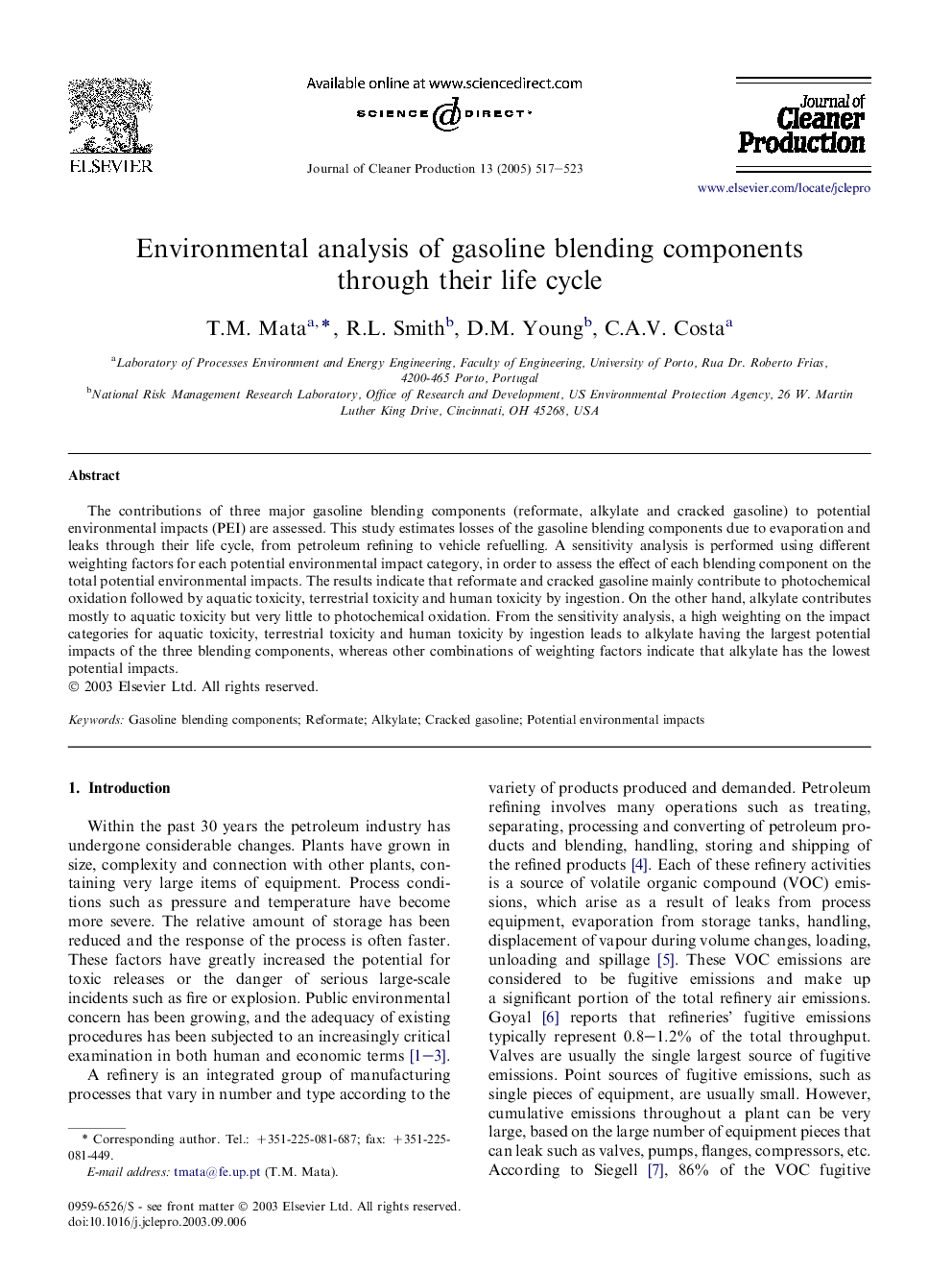| Article ID | Journal | Published Year | Pages | File Type |
|---|---|---|---|---|
| 10688512 | Journal of Cleaner Production | 2005 | 7 Pages |
Abstract
The contributions of three major gasoline blending components (reformate, alkylate and cracked gasoline) to potential environmental impacts (PEI) are assessed. This study estimates losses of the gasoline blending components due to evaporation and leaks through their life cycle, from petroleum refining to vehicle refuelling. A sensitivity analysis is performed using different weighting factors for each potential environmental impact category, in order to assess the effect of each blending component on the total potential environmental impacts. The results indicate that reformate and cracked gasoline mainly contribute to photochemical oxidation followed by aquatic toxicity, terrestrial toxicity and human toxicity by ingestion. On the other hand, alkylate contributes mostly to aquatic toxicity but very little to photochemical oxidation. From the sensitivity analysis, a high weighting on the impact categories for aquatic toxicity, terrestrial toxicity and human toxicity by ingestion leads to alkylate having the largest potential impacts of the three blending components, whereas other combinations of weighting factors indicate that alkylate has the lowest potential impacts.
Related Topics
Physical Sciences and Engineering
Energy
Renewable Energy, Sustainability and the Environment
Authors
T.M. Mata, R.L. Smith, D.M. Young, C.A.V. Costa,
